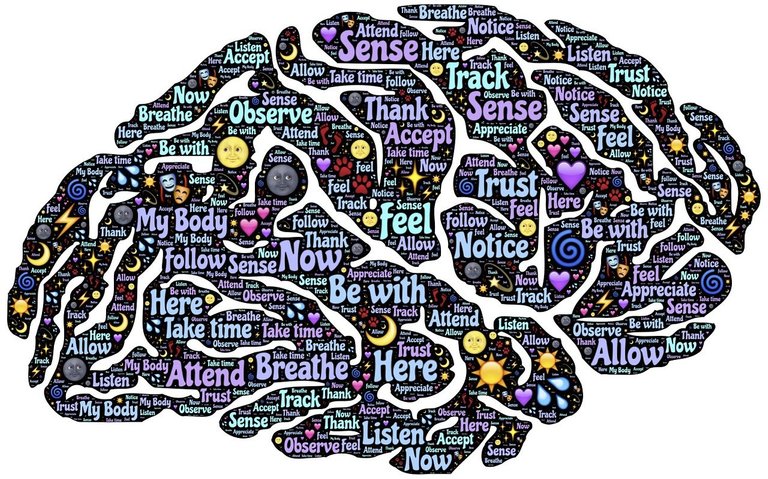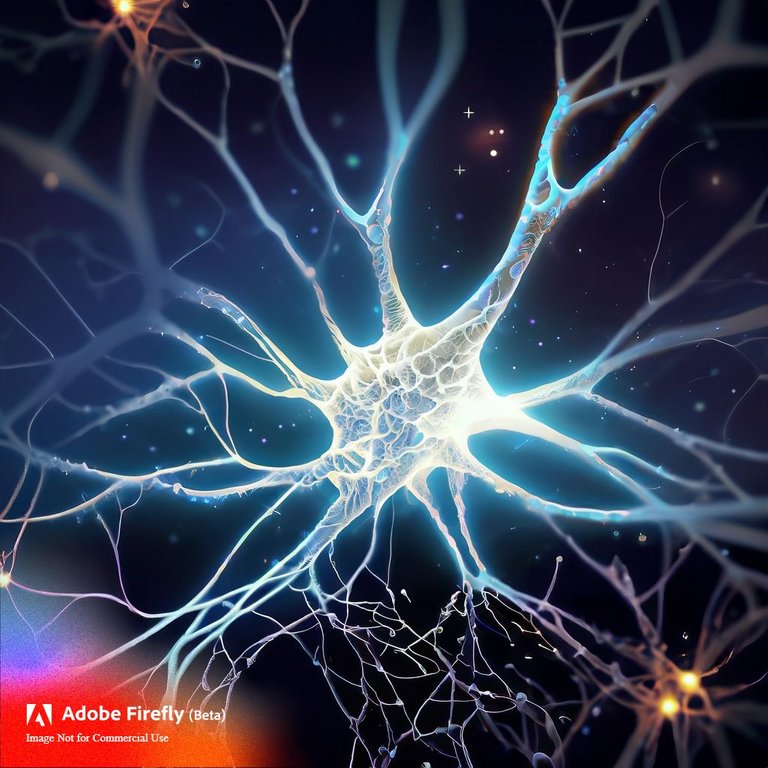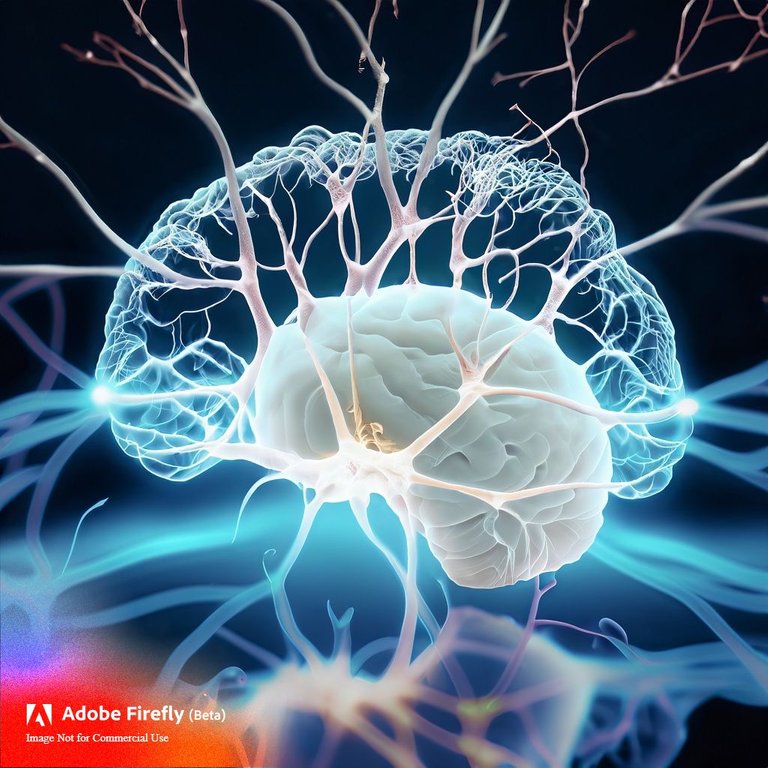
In today's fast-paced world, where distractions lurk around every corner, the ability to focus has become a rare and valuable skill. Being able to concentrate on a task or goal without succumbing to distractions is not only crucial for productivity but also has a profound impact on the functioning of our brain. In this article, we will explore the power of being focused and how it influences the way our brain operates.
Focus: Overcoming Two Epic Foes
Understanding the factors that diminish our ability to concentrate is crucial. Let's examine the two main culprits:
Mental congestion
Multitasking, often mistaken for productivity, is a common enemy of focus. When we attempt to juggle multiple tasks simultaneously, our brain experiences mental congestion. This leads to increased stress and mental exhaustion as our brain struggles to switch between tasks rapidly. On the other hand, when we focus on one task at a time, we reduce the cognitive load, allowing our brain to work more efficiently and lowering overall stress levels.

Goal dilemma
When faced with multiple goals or uncertain priorities, focus becomes elusive. The Anterior Cingulate Cortex (ACC), a critical cognitive center, becomes hyperactive in such situations. The ACC supports decision-making, motivation, learning, assessing pros and cons, and conflict monitoring. Unfortunately, an overactive ACC disrupts our ability to concentrate, leading to scattered efforts and limited progress. Columbia's research on goal achievement further supports this notion.
Focus: The Key to Unlocking Your Brain's Potential
When we talk about focus, we refer to the ability to direct our attention and mental energy towards a specific task or goal while filtering out irrelevant stimuli. It is like shining a spotlight on what truly matters and shutting out everything else. The power of focus lies in its capacity to channel our brain's resources effectively, leading to improved cognitive abilities and enhanced performance.
Enhanced Cognitive Abilities
Cognitive abilities are often divided into two categories: fluid intelligence and crystallized intelligence. Fluid intelligence is the ability to think abstractly and solve new problems. Crystallized intelligence is the ability to use knowledge and skills that we have learned in the past.
Both fluid and crystallized intelligence are important for our cognitive abilities. However, fluid intelligence tends to decline with age, while crystallized intelligence can continue to improve throughout our lives.
When we focus on a particular task, our brain allocates its resources efficiently. This means that the regions responsible for that specific task receive the necessary neural connections, allowing them to function optimally. Consequently, our cognitive abilities related to that task, such as memory, problem-solving, and decision-making, are enhanced.
Neuroplasticity: Rewiring Your Brain
Your brain is made up of billions of neurons, which are constantly communicating with each other. When you learn something new, or focus on a task, these neurons form new connections. This is called neuroplasticity, and it's the process by which your brain can change and adapt.
The brain is a highly adaptable organ, capable of rewiring itself in response to new experiences and learning. When we engage in focused activities regularly, we stimulate neuroplasticity, which is the brain's ability to form new neural connections. This process strengthens existing neural pathways and creates new ones, leading to improved information processing, learning, and skill development. In essence, focused activities help shape our brain and expand its capabilities.
Improved Attention Span
In today's digital age, where distractions are just a click away, our attention spans have been noticeably shortened. However, through the practice of focus, we can train our brain to sustain attention for longer periods. Similar to a muscle, the more we exercise our ability to focus, the stronger it becomes. With an enhanced attention span, we become better equipped to navigate through complex tasks, absorb information more effectively, and maintain a heightened level of productivity.
The Role of Mindfulness
Mindfulness, the practice of being fully present and aware of the present moment, plays a significant role in cultivating focus. By training our minds to stay present, we learn to resist distractions and maintain attention on the task at hand. Studies have shown that regular mindfulness practice enhances our ability to sustain focus, improves working memory, and reduces mind-wandering. It also positively affects the structure and function of the brain, fostering better emotional regulation and overall well-being.

Effective Strategies for better brain functioning
Prioritize tasks: Identify the most important tasks and focus on them first. Avoid the temptation to multitask and dedicate your full attention to one task at a time.
Set clear goals: Clearly define your goals and break them down into manageable tasks. This clarity provides a sense of purpose and direction, fueling your motivation and focus.
Create a conducive environment: Minimize distractions by creating a dedicated workspace and implementing techniques like time-blocking and digital detoxes.
Practice mindfulness: Engage in mindfulness exercises, such as meditation or deep breathing, to enhance your ability to stay present and focused.
Take regular breaks: Allow yourself short breaks between focused periods to recharge and maintain mental clarity.
Prioritize self-care: A healthy lifestyle, including regular exercise, proper nutrition, and sufficient sleep, supports optimal brain functioning. Taking care of your physical well-being enhances your ability to concentrate and sustain focus.
Develop a routine: Establish a consistent routine that supports focus and productivity. Our brains thrive on structure and repetition.
Use a timer: Set a timer for 25 minutes and work on a task without distractions. When the timer goes off, take a 5-minute break. Repeat this process for 4-5 cycles, then take a longer break.
Find a quiet place to work. If you can, find a quiet place where you won't be interrupted. This will help you to focus better.
Listen to music: Listening to music can help to improve focus and productivity. Choose music that is calming and doesn't have any lyrics.
Take a walk: If you're feeling stuck, take a walk. Getting some fresh air and exercise can help to clear your head and improve your focus.
Talk to someone: If you're feeling overwhelmed, talk to someone you trust. Sometimes, just talking about your problems can help you to come up with solutions.

Remember, everyone is different, so what works for one person may not work for another. Experiment with different techniques and find what works best for you. With a little practice, you can train your brain for focus and productivity.
By understanding the inner workings of your brain and implementing strategies to optimize its functioning, you can unlock your full potential and achieve remarkable levels of productivity. Prioritize brain health, practice mindfulness, leverage techniques like the Pomodoro Technique and visualization, embrace continuous learning, and cultivate positive habits. Remember to create an environment that supports focus and declutter your space. Embrace the power of technology by using digital tools that enhance productivity. With these productivity hacks focusing on brain functioning and training, you can unleash your brain's potential and accomplish more than you ever thought possible.
Hope you find it useful.
Thanks for reading all through it. Keep reading, keep learning, stay healthy, stay focused.
All the images in this article are referenced from pixbay and adobe firefly
References Articles:
Brain Hacks
Unlock your brains full potential
The Neuroscience of focus

